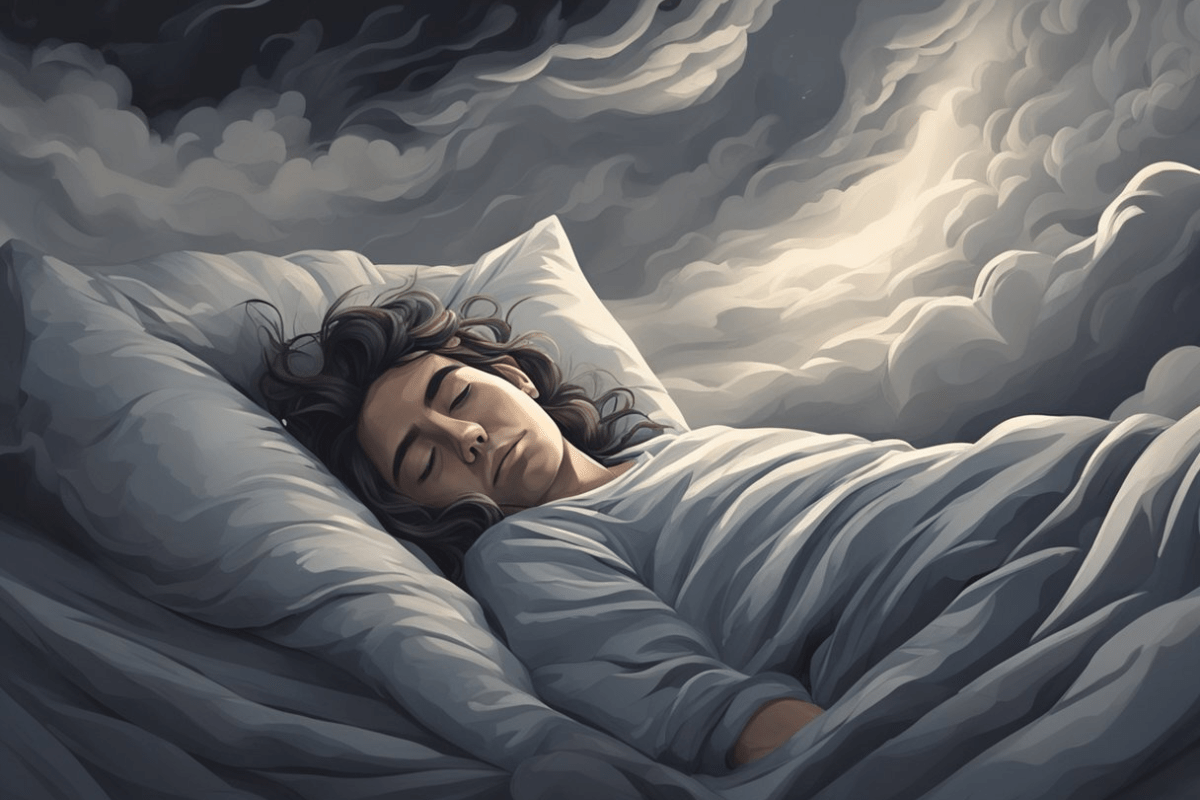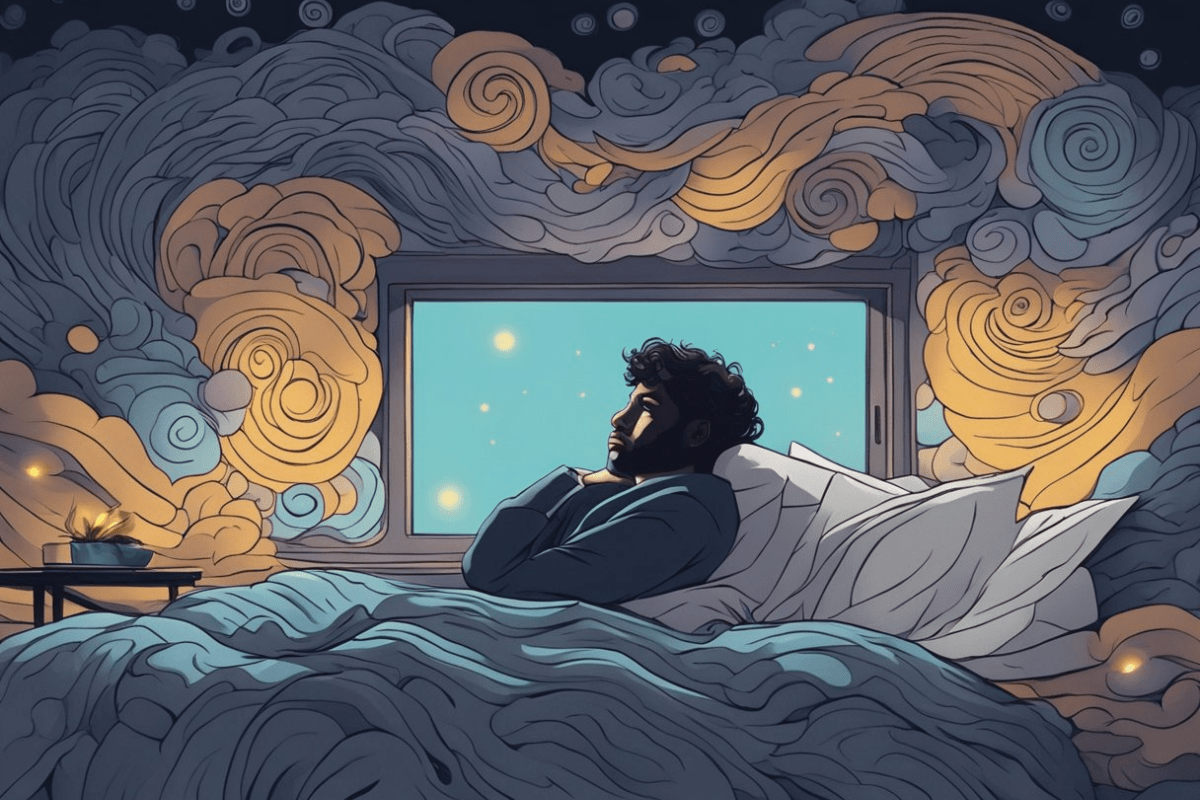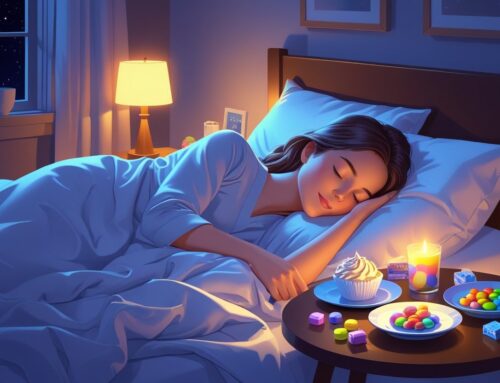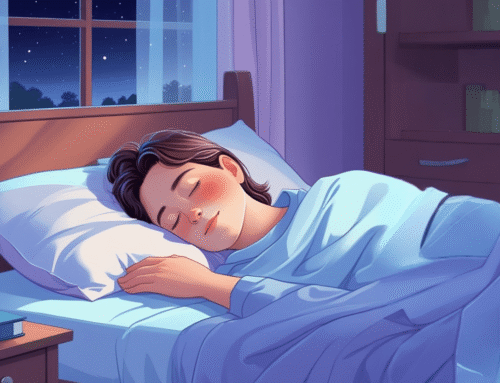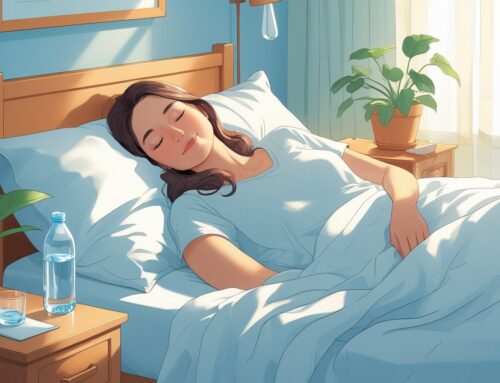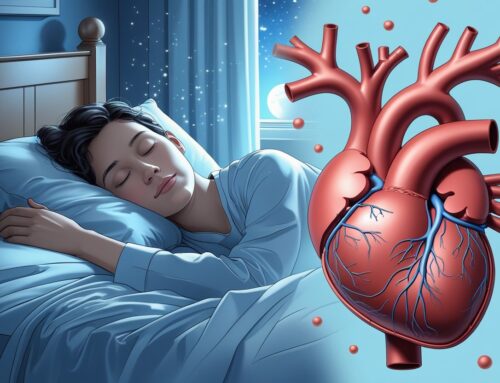Anxiety can take a serious toll on sleep, creating a frustrating cycle that many people struggle to break. If you deal with anxiety, you might find it hard to relax at night, making it difficult to fall asleep or get restful sleep. Understanding how anxiety and sleep are connected is key to tackling these challenges.
For some, sleep anxiety becomes its own issue—the fear of going to sleep because of stress or racing thoughts. The first step in managing this is recognizing the signs. Fortunately, there are ways to work through sleep-related anxiety, from simple breathing exercises to therapy and professional support.
Key Takeaways
- Anxiety disrupts sleep and can create a negative cycle of sleeplessness.
- Identifying symptoms and triggers is vital for managing sleep anxiety.
- Effective treatments can help improve sleep quality and reduce anxiety-related issues.
- The right mattress can play a crucial role in easing anxiety and sleep troubles by providing proper support and comfort.
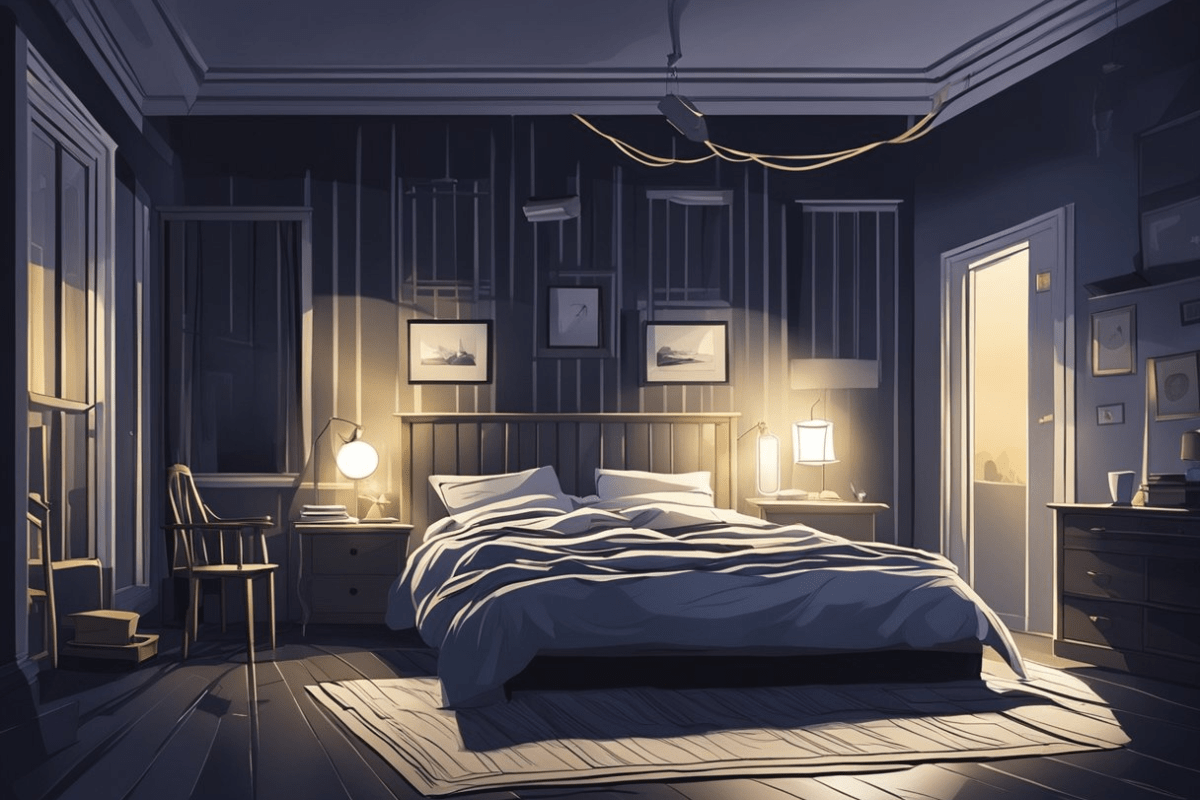
Understanding Anxiety and Sleep Disorders
Anxiety can take a serious toll on sleep quality. Many people who struggle with anxiety find it hard to fall asleep and stay asleep, creating a frustrating cycle where both anxiety and sleep problems continue to get worse.
What Is Sleep Anxiety
Sleep anxiety is the fear or worry about not being able to fall asleep. It can come from a variety of sources—stress from daily life, work-related worries, or concerns about health. The more pressure someone feels to sleep, the harder it becomes to actually drift off.
This kind of anxiety often brings physical symptoms like a racing heart or sweating, which only add to the stress around bedtime. As a result, creating a calming nighttime routine can feel nearly impossible. Over time, sleep anxiety can lead to a pattern where a person dreads going to bed, making insomnia even worse. Many people experience this without even realizing that their struggles with sleep are tied to their anxiety.
The Connection Between Anxiety and Insomnia
The link between anxiety and insomnia is complicated. Anxiety can cause insomnia by keeping the mind racing with worries, making restful sleep feel out of reach. In fact, research shows that many people with anxiety disorders also struggle with sleep, reinforcing just how closely the two are connected. On the flip side, not getting enough sleep can make anxiety even worse. When someone is sleep-deprived, their ability to handle stress decreases, making anxious thoughts feel even more overwhelming.
Since anxiety and insomnia fuel each other, breaking the cycle often means addressing both issues at the same time. Finding the right approach can help restore a healthier sleep pattern and reduce overall anxiety levels.
Symptoms and Identification
Recognizing the symptoms of anxiety-related sleep issues is key to managing them effectively. By understanding the signs, individuals can better identify whether they are dealing with sleep anxiety or insomnia linked to anxiety. Below are some common symptoms and signs to help with identification.
Sleep Anxiety Symptoms
Sleep anxiety often shows up as a deep sense of worry or fear when bedtime approaches. Many people experience racing thoughts or stress about whether they’ll be able to fall asleep. These anxious feelings can also trigger physical reactions like a fast heartbeat, sweating, or stomach discomfort.
Some individuals may find themselves caught in negative self-talk, convinced that their sleep struggles will never improve. This cycle of stress can make things worse, sometimes even leading to avoidance of bedtime altogether. Trouble falling asleep or waking up multiple times throughout the night is also common.
Over time, these symptoms can take a serious toll on daily life and overall well-being, making it important to recognize them early and seek the right support.
Common Signs of Anxiety-Induced Insomnia
Anxiety-induced insomnia comes with specific signs that can make it difficult to get quality rest. One of the most common signs is waking up frequently at night, often due to anxious thoughts that won’t quiet down. Many people also struggle to fall back asleep once they wake, leaving them feeling restless and frustrated. Another common challenge is difficulty relaxing before bed. Some individuals find it nearly impossible to disconnect from daily stressors, keeping them in a constant state of alertness. Over time, this can lead to chronic fatigue, poor concentration, and reduced energy during the day.
Recognizing these signs is the first step in getting the right help. Addressing sleep hygiene and managing anxiety effectively can lead to better rest and improved overall well-being.
Causes and Triggers of Anxiety-Related Sleep Disturbances
Anxiety and sleep disturbances often go hand in hand. Understanding the specific causes and triggers can make it easier to manage both. Lack of sleep can heighten anxiety, while poor sleep can sometimes bring on anxiety attacks.
Sleep Deprivation and Anxiety
Not getting enough sleep can make anxiety worse. When the body doesn’t get the rest it needs, it can lead to irritability and increased stress. This can create a frustrating cycle—more anxiety leads to more sleepless nights, which in turn fuels even more anxiety.
Studies show that ongoing sleep deprivation can make people more vulnerable to anxiety disorders. This can show up as racing thoughts, excessive worry, and difficulty relaxing. In short, poor sleep can fuel anxiety, and persistent anxiety can make it even harder to get the deep, restful sleep the body needs.
Lack of Sleep and Anxiety Attacks
A lack of sleep can also trigger anxiety attacks. When someone is sleep-deprived, they may experience a racing mind or a pounding heartbeat, both of which can lead to feelings of panic. These symptoms can sometimes escalate into full-blown anxiety attacks.
Additionally, without enough sleep, the brain struggles to regulate emotions effectively. This can make even minor stressors feel overwhelming. It’s clear that poor sleep and anxiety go hand in hand, reinforcing each other in a way that can be difficult to break without proper intervention.
Managing Anxiety to Improve Sleep
Many people struggle with sleep due to anxiety. Fortunately, making certain lifestyle changes and practicing relaxation techniques can support better rest. These strategies help calm the mind and create an environment that promotes deep, restful sleep.
Lifestyle Changes for Better Sleep
Simple changes in daily habits can make a big difference in improving sleep. One of the most important steps is maintaining a consistent sleep schedule. Going to bed and waking up at the same time every day helps regulate the body’s internal clock, making it easier to fall asleep and wake up feeling refreshed.
Avoiding stimulants like caffeine and nicotine, especially in the evening, can also help prevent sleep disruptions. Regular physical activity is another great way to promote relaxation and improve sleep. Exercise releases endorphins, which help reduce anxiety and create a sense of calm that makes it easier to rest at night.
Creating a comfortable sleep environment is just as important. A dark, cool, and quiet room can make a big difference in sleep quality. Limiting screen time before bed is also key, as the blue light from phones and computers can interfere with the body’s natural sleep-wake cycle.
Relaxation Techniques Before Bedtime
Practicing relaxation techniques before bed can ease anxiety and make it easier to fall asleep. Deep breathing exercises are especially effective—taking slow, deep breaths can lower heart rate and signal the body to relax. Another helpful technique is mindfulness meditation. Spending just a few minutes focusing on the present moment can quiet racing thoughts and ease tension. Writing down worries in a journal can also help clear the mind, allowing individuals to process their concerns before sleep.
Gentle stretching or yoga can release physical tension, making it easier to unwind. Listening to calming music or white noise can further enhance relaxation, creating a peaceful atmosphere for rest. Together, these techniques make falling asleep easier for those struggling with anxiety.
Treatment Options for Sleep Anxiety
Effectively treating sleep anxiety means addressing both the anxiety itself and the sleep problems it causes. There are several treatment options available, and they can be tailored to fit individual needs. Below are some psychological therapies, medications, and natural remedies that can help manage sleep anxiety.
Psychological Therapies
Cognitive Behavioral Therapy (CBT) is one of the most effective treatments for sleep anxiety. It helps individuals identify and change the negative thought patterns that contribute to their worries about sleep. CBT also teaches practical coping strategies to manage anxiety and build healthier sleep habits.
Mindfulness and relaxation techniques can also make a big difference. Simple practices like deep breathing, meditation, or guided imagery can help calm the mind before bed, making it easier to fall asleep.
For those who experience intense fear around sleep, exposure therapy may be helpful. This approach gradually introduces individuals to their sleep-related fears in a controlled way, helping to reduce anxiety over time. Working with a mental health professional can provide valuable guidance and support throughout these therapies.
Medication and Natural Remedies
In some cases, medications may be recommended to manage sleep anxiety. Benzodiazepines and non-benzodiazepine sleep aids can help individuals fall asleep faster, while certain antidepressants, such as SSRIs, may also be effective for anxiety-related sleep issues. Since these medications can have side effects, they should always be used under the guidance of a healthcare provider.
For those looking for natural remedies, herbal supplements like chamomile and valerian root may promote relaxation and improve sleep quality. However, it’s important to consult a healthcare professional before using any supplements to ensure they don’t interfere with other medications.
Lifestyle changes can also support treatment. Regular physical activity and maintaining a consistent sleep schedule can help regulate the body’s natural rhythms. Creating a calming bedtime routine—such as dimming the lights, avoiding screens, and engaging in relaxing activities—can also be a simple yet effective way to ease sleep anxiety.
The Role of Professional Help
Seeking professional help can be life-changing for those struggling with anxiety and sleep problems. The right guidance can lead to better coping strategies and improved sleep quality. Knowing when to seek help and understanding the different types of healthcare providers available are important steps in getting the right support.
When to Consult a Doctor
It may be time to consult a doctor when anxiety becomes overwhelming or starts interfering with daily life. Warning signs include constant worry, trouble focusing, and feelings of hopelessness that don’t go away.
If anxiety-related insomnia is making it difficult to fall asleep or stay asleep, professional evaluation may be necessary. Symptoms like restless nights, frequent awakenings, or waking up still feeling exhausted can take a toll on both physical health and overall well-being. Reaching out for help early can lead to a personalized treatment plan that addresses both anxiety and sleep concerns.
Types of Healthcare Providers
Several healthcare professionals specialize in treating anxiety and sleep-related issues:
- Primary Care Physicians – They assess overall health and can provide referrals to specialists.
- Psychiatrists – These doctors focus on mental health and can prescribe medications if needed.
- Psychologists – They provide therapy, such as Cognitive Behavioral Therapy (CBT), to help manage anxiety and improve sleep.
- Counselors or Therapists – These professionals offer various therapeutic techniques to help with anxiety management.
Choosing a provider who understands the connection between anxiety and sleep issues is key to receiving comprehensive and effective care.
Prevention and Long-Term Strategies for Healthy Sleep
To promote healthy sleep, it’s important to establish consistent routines. Going to bed and waking up at the same time every day helps regulate the body’s internal clock, making it easier to fall and stay asleep. Creating a calming bedtime routine can also make a big difference. Engaging in relaxing activities like reading or doing gentle stretches before bed can help the body and mind transition smoothly into sleep.
Good sleep hygiene plays a key role in managing anxiety. A comfortable sleeping environment—such as a dark, cool, and quiet room—can enhance sleep quality and make it easier to unwind at night. Limiting screen time before bed is also essential. The blue light from phones, tablets, and computers can disrupt the body’s natural sleep-wake cycle, making it harder to fall asleep and potentially increasing anxiety levels.
Addressing sleep deprivation is crucial, as lack of sleep can heighten feelings of anxiety. Sticking to a regular sleep schedule can help reduce the anxiety that comes from sleep disturbances.
Physical activity is another important factor. Regular exercise not only improves overall health but also helps lower anxiety and promotes better sleep.
Practicing mindfulness and relaxation techniques—such as deep breathing or meditation—can also help calm the mind. Doing these exercises before bed may ease racing thoughts and worries that interfere with sleep. If anxiety is severely impacting sleep, seeking professional help may be necessary. A healthcare provider can offer guidance and recommend effective treatments to improve both anxiety and sleep quality.
Choosing the Right Mattress for Anxiety and Sleep
Selecting the right mattress can play a crucial role in managing anxiety and improving sleep quality. A supportive and comfortable mattress helps promote relaxation, reduces restlessness, and enhances overall sleep hygiene. Two excellent options for those struggling with anxiety-related sleep issues are the Bear Elite Hybrid and the best twin-size mattress for comfort and support.
Bear Elite Hybrid: A Mattress Designed for Better Sleep and Less Anxiety
The Bear Elite Hybrid is specifically designed to provide superior support and pressure relief, making it an excellent choice for individuals dealing with anxiety and sleep disturbances. Its advanced cooling technology helps regulate body temperature, preventing night sweats that can contribute to discomfort and restlessness. The hybrid construction, which combines memory foam and individually wrapped coils, ensures proper spinal alignment while minimizing motion transfer—perfect for those who tend to toss and turn due to anxiety.
The Bear Elite Hybrid also incorporates zoned support, which helps reduce pressure points and enhances comfort, leading to deeper, more restorative sleep. For anyone struggling with anxiety-related sleep problems, this mattress offers a balanced mix of support and softness to create a calming sleep environment.
Best Twin-Size Mattress for Anxiety and Sleep Improvement
For individuals looking for a twin-size mattress—whether for a child, teenager, or solo sleeper—a high-quality twin mattress can provide the right level of comfort and stability needed to reduce anxiety and promote restful sleep. The best twin-size mattresses offer medium-firm support, which is ideal for maintaining proper posture and reducing body tension that can contribute to sleep disturbances.
Memory foam twin mattresses, for example, contour to the body and help relieve stress, making them great for those who experience anxiety-related sleep issues. Additionally, twin hybrid mattresses with a combination of foam and coils provide extra support and motion isolation, preventing disruptions that could worsen anxiety.
By investing in the right mattress—whether the Bear Elite Hybrid or the best twin-size mattress—individuals struggling with anxiety and sleep challenges can create a sleep-friendly environment that supports relaxation, improves sleep quality, and reduces nighttime stress.

